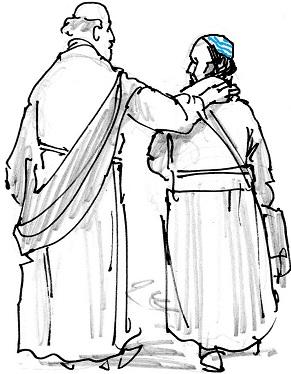

“The hand of the Lord was with them” (Acts 11:21).
Acts 11:19-26; John 10:22-30
When news came to Jerusalem that gentiles were being welcomed into the church at Antioch, leaders sent Barnabas to investigate, and he found an outpouring of the Holy Spirit there. He then went on to Tarsus and found Saul, who, according to some biographers, had retreated there for 10 years after his first visit to Jerusalem after his conversion and time in Arabia absorbing his encounter with Jesus on the road to Damascus.
The mother church in Jerusalem may have been less than receptive to Saul at first but remembered him when the Spirit began to move so powerfully among the gentiles, and Barnabas was sent to find him. This decision changed the future of the church by validating the conversion of the great evangelist to the gentiles, who became Paul and began the first of three missionary journeys that expanded membership in the church throughout Asia Minor and into the Mediterranean world centered in Rome.
The Holy Spirit, as Jesus describes her in the fourth Gospel, moves like the wind, going freely beyond boundaries and institutional attempts to contain and control the Mystery of God with doctrine or religious and cultural bias, intellectual systems and rules. The church came to be not by human design but by the will of the Lord of history, bringing it forth as the birth of new hope. How fitting that Paul, who described himself as “untimely born” a surprise rebirth so radical it took him a lifetime to unpack its implications, was chosen to draw the church into the same encounter with the crucified and risen Jesu he had experienced.
Barnabas, “a good man, and filled with the Holy Spirit and faith,” later had a falling out with Paul, but he fulfilled the meaning of evangelization when he searched for and brought Saul into the community. Even in Paul’s shadow, Barnabas is one of the early church’s greatest saints and a model for us. Pope Francis has said that the church grows not by apologetics but by attracting others with holiness and joy, the best argument for Christianity. With Paul and Barnabas ministering in Antioch for a whole year, the community grew rapidly as outsiders, Jew and gentile, saw the love overflowing among these followers of Jesus, first called “Christians” in that city.
Advertisement




